- Home
- David Lubar
Dog Days Page 3
Dog Days Read online
Page 3
“You aren’t moving?” Larry guessed. “Is that it? Your folks decided to stay in town? Hey, that’s not so bad. At least you’ll still be around. So that’s really good news.” Larry understood what people meant when they said they had “mixed feelings.” He hated the thought of not getting the paper route, but he was glad his friend wasn’t going away.
Carlos shook his head. “I wish that was it. I’m still moving. But my cousin is coming to town. My mom’s making me give him the paper route. I told her I promised to give it to you, but she says family comes first.”
“Oh, man . . .” Larry didn’t know what else to say. Everything was supposed to get better in the fall. That’s all that had kept him going. Now it looked like things would never get better. He felt like he’d just opened a huge bag of dog food and found that it was filled with nothing but hard clumps of dirt.
“Hey, I’m sorry,” Carlos said. “I really wish I could give it to you.”
“Yeah, I know. It’s not your fault,” Larry said.
“So,” Carlos asked, “are we going to play some ball?”
“Not right now,” Larry said. “Maybe later.” He went over to get Paul.
“We’re leaving?” Paul asked.
Larry nodded. He walked off the field with Paul and headed toward home. No matter how much he loved baseball, he just couldn’t enjoy the game right now. He needed to be with his dogs.
They were waiting for him. Paul went inside. Larry stayed in the yard. He played with the dogs and brushed them. “I don’t know what I’m going to do, guys. But don’t worry,” he told them. “I’ll figure out something. I’m not going to let you down.”
Shaking his head, Larry filled the water bowl for the dogs and got them some food. He finished the last of the old bag and opened the new bag. He looked from the full bag to the crumpled, empty sack. It was amazing how quickly one turned into the other. Unless he got some money real soon, there was no way he’d be able to keep feeding the dogs.
Larry spent the rest of the afternoon playing with the dogs and trying to think of a way to make money. Maybe I can sell some of my stuff, he thought. He realized he had hardly anything worth selling. He looked at the porch where he’d left his glove. The glove was only a year old—just now perfectly broken in. He could get some money for it, but he didn’t know if he could bear to give it up.
Larry scratched Duke behind his left ear and rubbed Hobo’s back. “I’ll sell my glove if I have to, guys. That’s a promise. Like Carlos said, family comes first. And you’re part of the family.”
“Larry, it’s almost six,” Paul called from the back porch. “Mom says to come in for dinner.”
As Larry walked into the house, he thought about the strange things he’d seen during the past two days. He thought about the dog in the alley and he thought about his own life. As much as every day seemed different, he realized that most things fell into cycles and patterns. Dinner at six. Baseball in summer. School in September. Every week his parents paid bills. Every week he collected papers and cans. Every weekday his dad went to work. Every weekend his mom went to her job. Patterns and cycles, cycles and patterns. Over and over.
He knew there were things he could always count on. He could always count on Paul to wander. He could always count on kids showing up at the park to play ball. And just like his dogs could count on him, he could always count on his parents to make meals. Breakfast, lunch, and dinnertime, someone was always there for him. But who was there for the dog in the alley?
“Dinnertime!” he said out loud.
Everything fell together in Larry’s mind. There was an answer. Larry knew what he needed to do tomorrow. He was so excited, he had a hard time falling asleep that night, but finally, he drifted off.
When Larry awoke the next morning, it was too early to try his plan. So he got dressed, fed his dogs, and played with them for a while. Finally, late in the morning, he searched for Paul. He found him watching cartoons in the living room.
“Come on,” Larry said. “I’ve got something to show you.”
“Where are we going?” Paul asked.
“You’ll see,” Larry said, feeling a little like one of those detectives in the movies. “I have a plan.”
I sure hope I’m right, he thought.
Larry knew this could be his last chance to save his dogs. It was the bottom of the ninth, bases were loaded, and he was down to his last swing.
CHAPTER 8
BOTTOM OF THE NINTH
Larry and Paul headed into town. As they reached the alley, the dog came up from behind them and darted past, heading between the bookstore and the diner.
I knew it! Larry thought. He looked across the street at the clock in front of the bank. Then he looked through the big glass windows of the diner. There was almost nobody inside. “Any minute now,” he said.
“What do you mean?” Paul asked.
“Just wait.” Larry was sure it would happen soon—if he was right. He watched the dog in the alley. It sat facing the door on the side of the diner.
Five minutes passed. The dog sat still. Only its ears moved with every tiny noise.
“Nothing’s happening,” Paul said.
“Be patient,” Larry told him.
Five more minutes passed. Larry started to wonder if he was wrong.
Suddenly, the dog got an excited look—the same look Larry saw on his dogs’ faces every time he dragged out their bag of food.
“Watch,” he whispered to Paul.
An instant later, the side door opened. A man wearing a white apron stuck his head out from inside the diner. “Here, pooch! Nice pooch,” he called into the alley. The dog barked and wagged its tail. The man held out a plate and flipped something off it. The stuff bounced off the opposite wall, left a splotch, and landed on the ground. The dog gobbled it up.
“Leftovers,” Larry explained. “After breakfast, lunch, and dinner, when the rush is over, that guy throws some food to the dog. That explains why it was only here at certain times. It must be pretty smart to have figured that out. That also explains why it growled—to protect the place where the food came from. The spots are just ketchup and stuff like that.”
Larry turned away from the alley and walked toward the front door of the diner. Now that he knew he was right, he hoped the second half of his plan would go smoothly. Especially since this was the part that would save his dogs.
“Where are we going?” Paul asked as he followed Larry.
“To talk to someone.” Larry went inside the diner. The place was almost empty, but Larry was sure it had been crowded an hour earlier when the people were eating breakfast.
“Take a seat anywhere,” the waitress said. “I’ll be right with you.”
“Is the owner here?” Larry asked.
The waitress nodded and went through a door behind the counter. A minute later, the man in the white apron came out. “What’s up, boys?” he asked. “Got a complaint?”
“No. No complaint. I saw you feeding that dog,” Larry said. “I wanted to tell you that’s a real nice thing to do.”
The owner shrugged. “It would just get thrown out otherwise,” he said.
“Are you careful what you give him?” Larry asked. “Some scraps aren’t good for dogs.”
“What are you, some kind of dog expert?” the owner asked. “Of course, I’m careful. I like animals.”
“Good. I’d hate to see him eating the wrong things. I’ve got three dogs myself. They sure do eat a lot. It’s tough feeding them. But if you’re just throwing out the leftovers, you wouldn’t mind if I took some, right?” Larry held his breath, waiting to see if the man would accept his offer.
The man looked at Larry for a moment, as if trying to make a decision. “I’ll tell you what,” he finally said. “I’m supposed to sort everything for recycling—you know, paper, metal, plastic. It’s a new law in town. But I’m so busy that it’s hard to find the time. If I don’t do it right, I’ll have to pay a big fine. I could use some
help. You willing to work hard?”
“Absolutely,” Larry said.
The man reached under the counter and pulled out a pair of rubber gloves. “If you sort the recyclables for me, you can take anything that your dogs can eat. It wouldn’t just be scraps. Sometimes there’s an extra roast at the end of the day. We don’t keep stuff overnight.” He pointed to a sign that read, “ALL OUR FOOD IS MADE FRESH EVERY DAY.”
“If you do a real good job, I’ll even see if I can pay you a couple of bucks each week. What do you say?”
“That’s great!” Larry said. It was more than great. With the food from the diner, he’d be able to stretch out the bags of dog food. There’d be enough for all of the dogs. Larry couldn’t believe his luck.
“I just have one condition,” the owner said.
Here it comes, Larry thought. He knew there had to be a catch. Just like with the price of food. And the price of scrap. And now, the price of food scraps. “What’s the condition?” Larry asked.
The owner pointed toward the side door. “That nice pooch out there. He needs a home, too. Can you take care of him?”
“Sure,” Larry said before he had time to think. But even after he thought about it, he knew it was exactly what he wanted to do. “You’ve got a deal.” He shook hands with the owner. Then Larry turned to Paul. “Come on. You can help me sort the recyclables.”
While he worked, he tossed a bit more food out to the dog, both to keep it from straying and to get it used to him. A half hour later, Larry left the diner with a large, stuffed bag of food. He and Paul walked out the door that led to the alley.
The dog backed away a step, but it didn’t growl.
“Here, boy,” Larry said.
The dog cautiously walked over to him and sniffed the bag. Then it walked past him and started sniffing Paul.
Paul backed away a step, but didn’t call for help. The dog followed him. Paul backed off another step. The dog followed him again. Larry watched carefully to make sure Paul was safe, but he didn’t get between them.
“Nice doggie,” Paul said. He reached out, then hesitated and looked up at his brother.
Larry nodded. “Go on. Real slow. Real gentle.”
Paul put his hand on the dog’s back and petted him. “Nice doggie,” he said again.
“He is nice,” Larry agreed.
Paul scratched the dog’s head, and the dog licked his hand. “What are you going to call him?” Paul asked.
“What else?” Larry said, looking across the alley at the wall. The perfect name was right in front of his eyes. “We’re going to call him Spot.”
“I like it,” Paul said.
“Thanks for bringing us together,” Larry said. He realized that he might never have met the dog if his brother didn’t have such a wild imagination. And he realized something else. “You know what? This isn’t just my dog, Paul. It’s our dog. Yours and mine.”
Paul looked up at Larry and grinned. “He likes me.” Then he went back to petting Spot.
Larry grinned, too. He walked toward the street with the two wanderers tagging along behind him.
“Come on, Spot,” he called. “We’re going home.”
ABOUT THE AUTHOR
DAVID LUBAR was born and raised in Morristown, NJ. He sold his first short story in 1978, two years after graduating from Rutgers. Armed with a degree in philosophy and no discernible job skills, he spent the bulk of the Carter administration as a starving writer before accidentally discovering he knew how to program computers.
He’s written more than a dozen books for young readers. His novel Hidden Talents was named an ALA Best Books for Young Adults and has been nominated for awards in eight states. His short stories have appeared in the collections of such respected anthologists as M. Jerry Weiss, Don Gallo, and Jennifer Armstrong. Mr. Lubar is a frequent speaker at state and national conferences.
Mr. Lubar says Dog Days is fictional, but he drew from his childhood while writing it. “The town where Larry lives isn’t all that different from the town where I grew up. I remember going with my big brother to take a wagonload of newspapers to sell for scrap. He was the hard worker; I was the dreamer. But we both turned out okay.”
He lives in Pennsylvania with his wife, daughter, and a trio of felines.

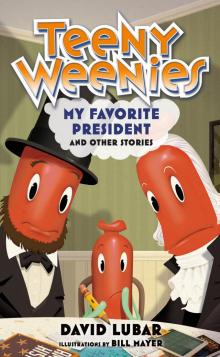 Teeny Weenies: My Favorite President
Teeny Weenies: My Favorite President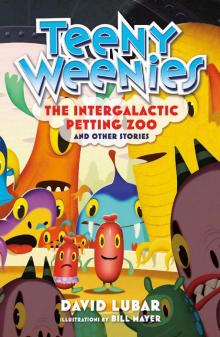 Teeny Weenies: The Intergalactic Petting Zoo
Teeny Weenies: The Intergalactic Petting Zoo Teeny Weenies: The Eighth Octopus
Teeny Weenies: The Eighth Octopus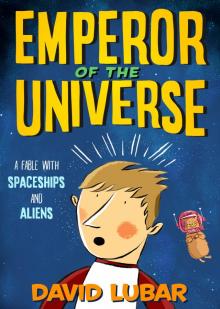 Emperor of the Universe
Emperor of the Universe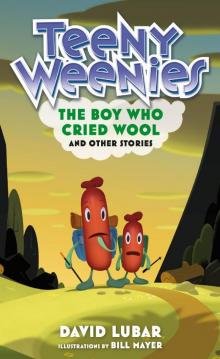 Teeny Weenies: The Boy Who Cried Wool
Teeny Weenies: The Boy Who Cried Wool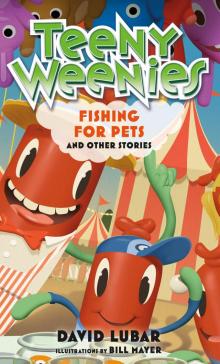 Teeny Weenies: Fishing for Pets
Teeny Weenies: Fishing for Pets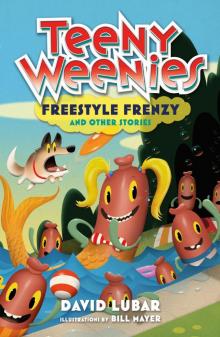 Teeny Weenies: Freestyle Frenzy
Teeny Weenies: Freestyle Frenzy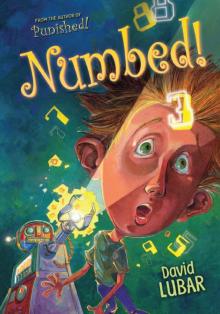 Numbed!
Numbed!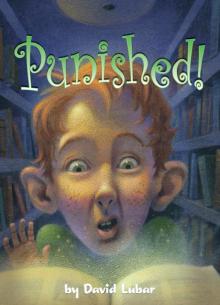 Punished!
Punished!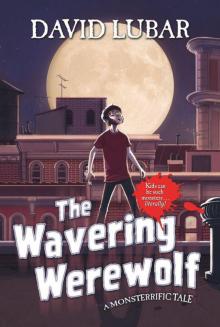 The Wavering Werewolf: A Monsterrific Tale (Monsterrific Tales)
The Wavering Werewolf: A Monsterrific Tale (Monsterrific Tales)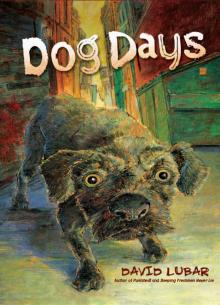 Dog Days
Dog Days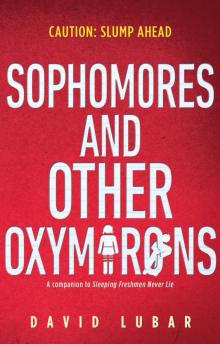 Sophomores and Other Oxymorons
Sophomores and Other Oxymorons The Psychozone
The Psychozone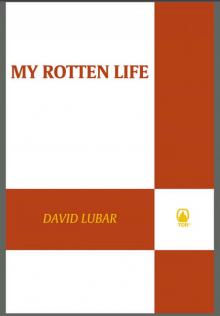 My Rotten Life
My Rotten Life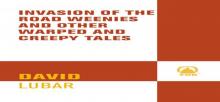 Invasion of the Road Weenies
Invasion of the Road Weenies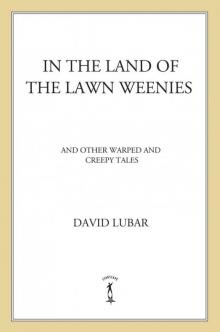 In the Land of the Lawn Weenies
In the Land of the Lawn Weenies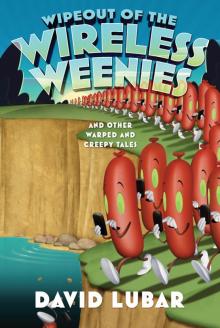 Wipeout of the Wireless Weenies
Wipeout of the Wireless Weenies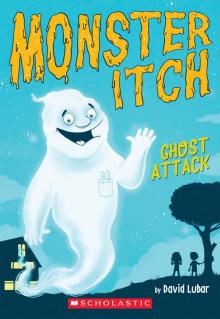 Ghost Attack
Ghost Attack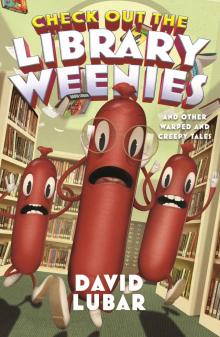 Check Out the Library Weenies
Check Out the Library Weenies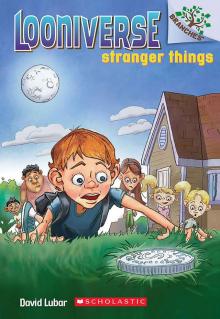 Looniverse #1: Stranger Things (A Branches Book)
Looniverse #1: Stranger Things (A Branches Book)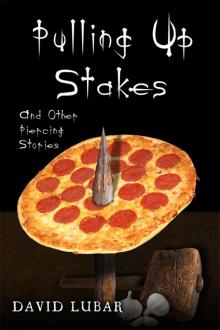 Pulling up Stakes and Other Piercing Stories
Pulling up Stakes and Other Piercing Stories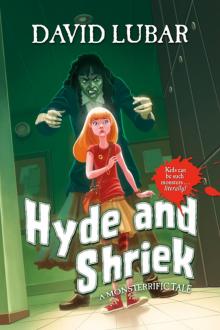 Hyde and Shriek
Hyde and Shriek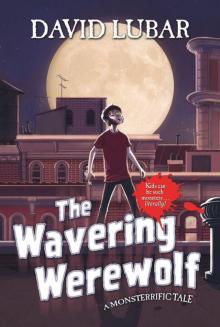 The Wavering Werewolf
The Wavering Werewolf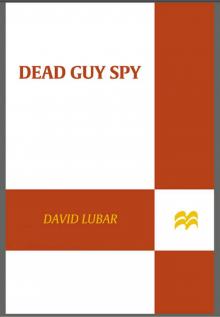 Dead Guy Spy
Dead Guy Spy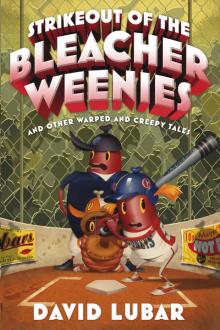 Strikeout of the Bleacher Weenies
Strikeout of the Bleacher Weenies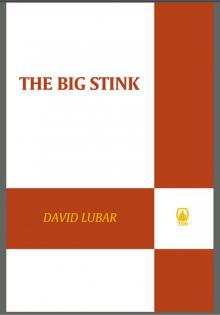 The Big Stink
The Big Stink The Battle of the Red Hot Pepper Weenies
The Battle of the Red Hot Pepper Weenies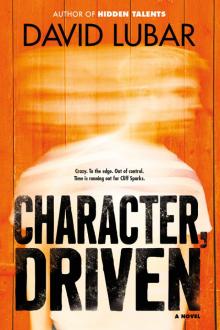 Character, Driven
Character, Driven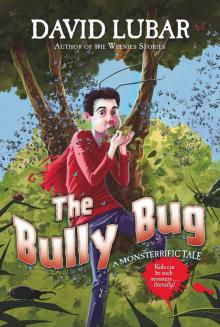 The Bully Bug
The Bully Bug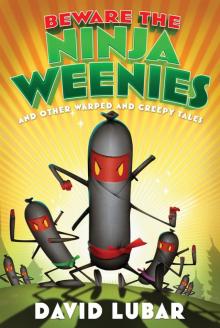 Beware the Ninja Weenies
Beware the Ninja Weenies Extremities: Stories of Death, Murder, and Revenge
Extremities: Stories of Death, Murder, and Revenge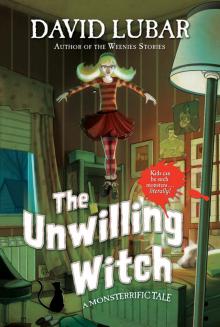 The Unwilling Witch
The Unwilling Witch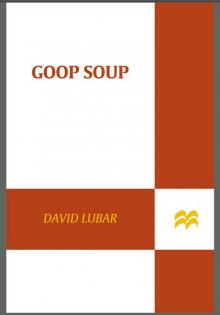 Goop Soup
Goop Soup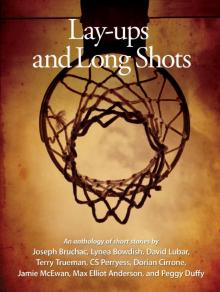 Lay-ups and Long Shots
Lay-ups and Long Shots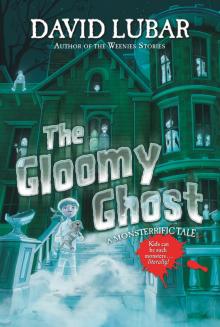 The Gloomy Ghost
The Gloomy Ghost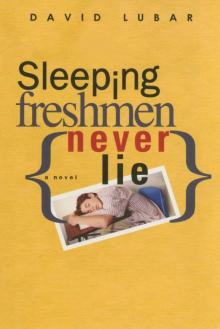 Sleeping Freshmen Never Lie
Sleeping Freshmen Never Lie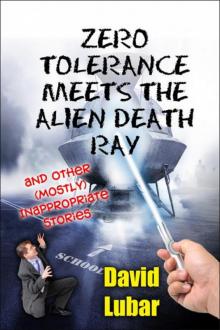 Zero Tolerance Meets the Alien Death Ray and Other (Mostly) Inappropriate Stories
Zero Tolerance Meets the Alien Death Ray and Other (Mostly) Inappropriate Stories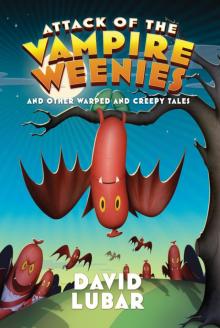 Attack of the Vampire Weenies
Attack of the Vampire Weenies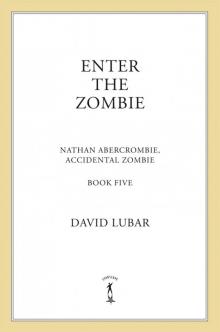 Enter the Zombie
Enter the Zombie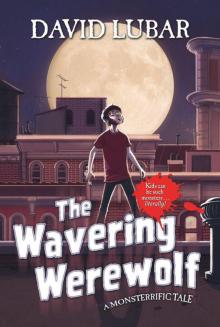 The Wavering Werewolf_A Monsterrific Tale
The Wavering Werewolf_A Monsterrific Tale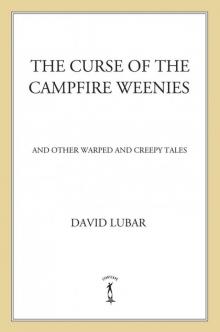 The Curse of the Campfire Weenies
The Curse of the Campfire Weenies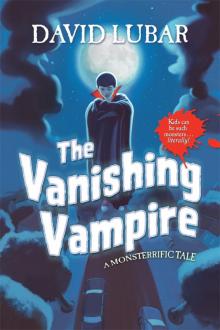 The Vanishing Vampire
The Vanishing Vampire